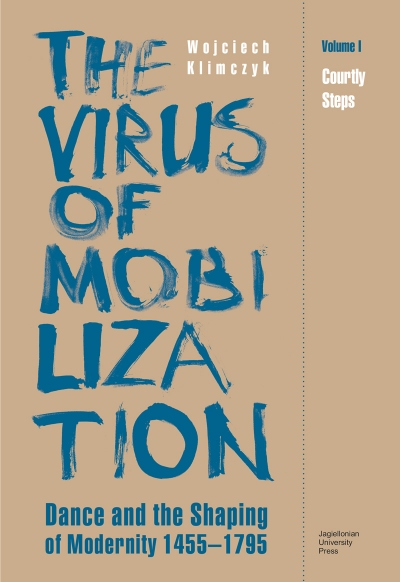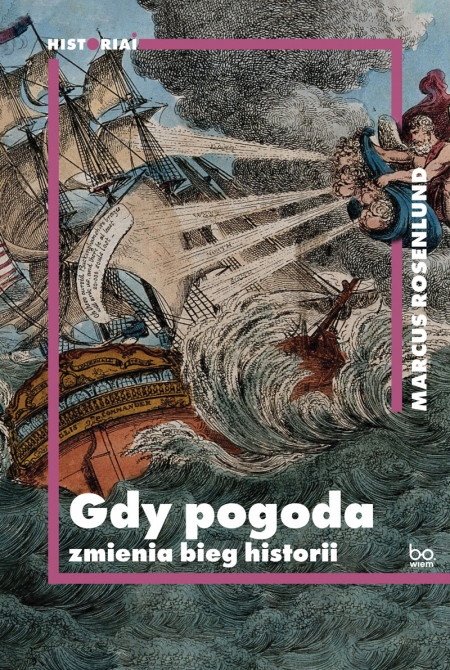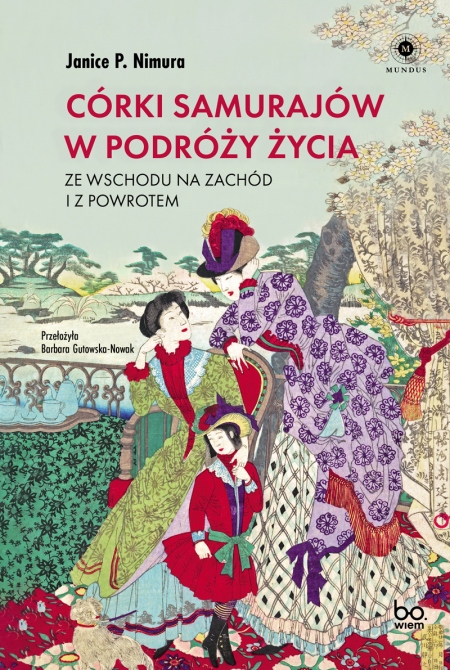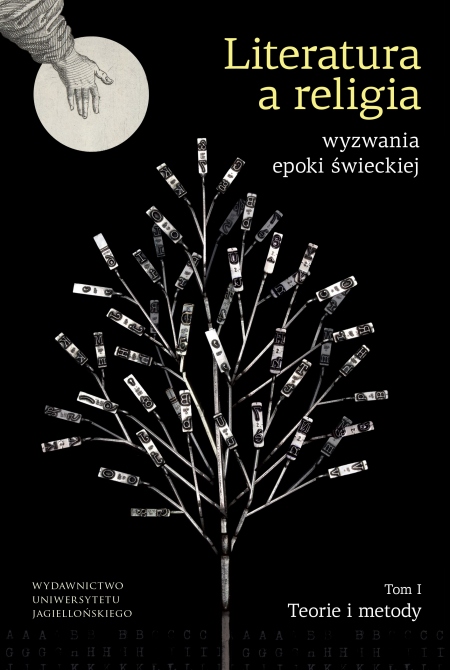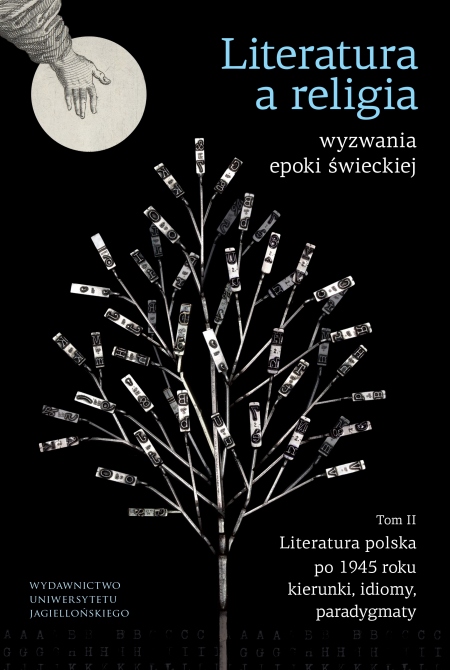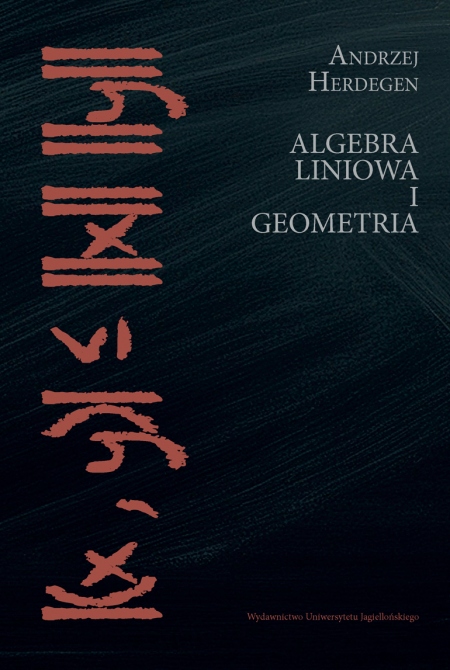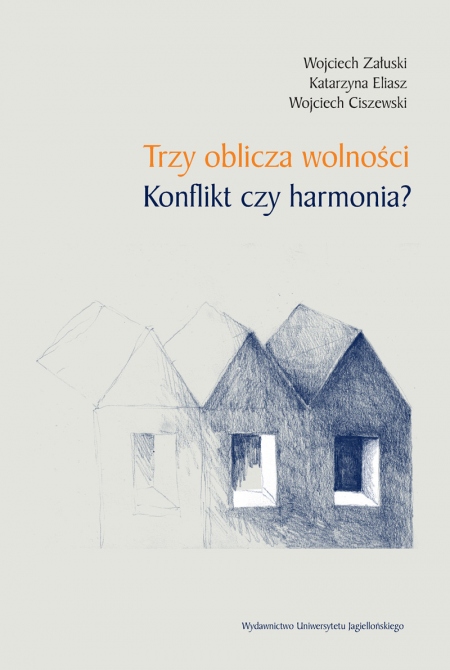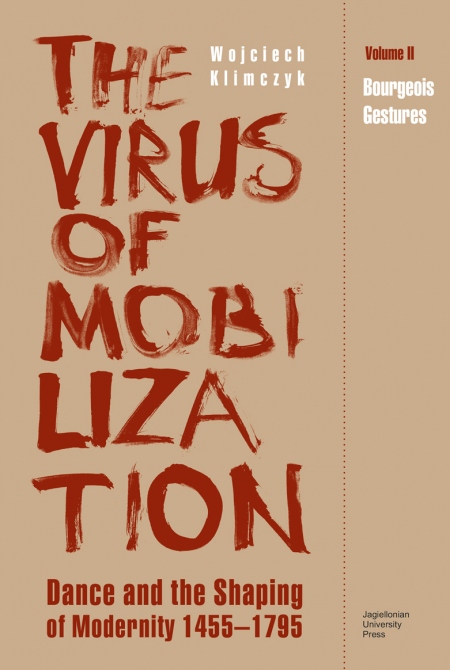
The Virus of Mobilization. Volume II – Bourgeois Gestures
Dance and the Shaping of Modernity 1455–1795
Przekład: Søren Gauger
Liczba stron: 491
Format: 16,5x24 cm
Rok wydania: 2020
Opis książki
The Virus of Mobilization is an attempt to construct an original approach to the history of dance in early modern Europe. This is not a history of choreographic works, though these do, of course, have their place. Nor is it a history of techniques and styles, though these too are given due attention. The main aim is to analyze the powers that summon dance to life and to respond in part to the question of why people danced the way they did at various stages of modernity’s development. What values were expressed through dance, what models of humanity and society were enacted by its means? In search of a reply, the author analyzes texts from the Renaissance, Baroque, Classicism, and the Enlightenment: most of all these are dance treatises, but also philosophical, political, and scientific papers, and works of art. The book has been furnished with numerous illustrations, following the author’s intent to reveal the kinetic imagination at various stages in the shaping of modern culture.
Wojciech Klimczyk works as a professor in the Centre for Comparative Studies of Civilisations at the Jagiellonian University. His research focuses on the relationships between culture and embodiment, putting special emphasis on studying dance in its social and political contexts. His books include Postmodern Eroticism (Universitas, 2008) and Visionaries of the Body: A Panorama of Contemporary Dance Theater (Ha!art, 2010). The Virus of Mobilization: Dance and the Shaping of Modernity 1455–1795 was originally released in Polish in 2015 by Universitas publishers, and, one year later, was nominated for the prestigious Polish Society of Theater Studies Award and the Prof. Tadeusz Kotarbiński Award for Poland’s best work in the humanities.
______________________________________________________________
Wirus mobilizacji to próba napisania oryginalnie pojmowanej historii tańca w nowożytnej Europie. Nie jest to historia dzieł choreograficznych, choć i one się w niej pojawiają. Nie jest to też historia technik i stylów, choć i im oczywiście poświęcona jest część uwagi. Głównym celem jest przyjrzenie się siłom, które powołują taniec do istnienia, odpowiedź na pytanie, dlaczego na danych etapach kształtowania się kultury tańczono tak, a nie inaczej. Jakie wartości były za pośrednictwem tańca realizowane, jaki model człowieczeństwa i społeczeństwa próbowano za jego pomocą wcielać w życie? By znaleźć odpowiedź na te pytania, autor analizuje teksty kultury epoki renesansu, baroku, klasycyzmu i oświecenia: przede wszystkim traktaty taneczne, ale również rozprawy filozoficzne, polityczne, naukowe oraz dzieła sztuki. Tekst opatrzono licznymi ilustracjami, zgodnie z autorskim zamierzeniem, by odsłonić wyobraźnię kinetyczną na różnych etapach kształtowania się kultury nowoczesnej.
Wojciech Klimczyk pracuje na stanowisku profesora w Katedrze Porównawczych Studiów Cywilizacji Uniwersytetu Jagiellońskiego. W pracy naukowej skupia się na relacjach między kulturą a cielesnością, szczególny nacisk kładąc na badanie tańca w społecznym i politycznym kontekście. Autor książek Erotyzm ponowoczesny (Universitas, 2008) oraz Wizjonerzy ciała. Panorama współczesnego teatru tańca (Ha!art, 2010). Praca Wirus mobilizacji. Taniec a kształtowanie się nowoczesności 1455–1795 ukazała się w 2015 roku nakładem wydawnictwa Universitas, uzyskując rok później nominację do prestiżowych nagród Polskiego Towarzystwa Badań Teatralnych oraz Nagrody im. Prof. Tadeusza Kotarbińskiego dla najlepszej polskiej książki z dziedziny humanistyki.
Wojciech Klimczyk works as a professor in the Centre for Comparative Studies of Civilisations at the Jagiellonian University. His research focuses on the relationships between culture and embodiment, putting special emphasis on studying dance in its social and political contexts. His books include Postmodern Eroticism (Universitas, 2008) and Visionaries of the Body: A Panorama of Contemporary Dance Theater (Ha!art, 2010). The Virus of Mobilization: Dance and the Shaping of Modernity 1455–1795 was originally released in Polish in 2015 by Universitas publishers, and, one year later, was nominated for the prestigious Polish Society of Theater Studies Award and the Prof. Tadeusz Kotarbiński Award for Poland’s best work in the humanities.
______________________________________________________________
Wirus mobilizacji to próba napisania oryginalnie pojmowanej historii tańca w nowożytnej Europie. Nie jest to historia dzieł choreograficznych, choć i one się w niej pojawiają. Nie jest to też historia technik i stylów, choć i im oczywiście poświęcona jest część uwagi. Głównym celem jest przyjrzenie się siłom, które powołują taniec do istnienia, odpowiedź na pytanie, dlaczego na danych etapach kształtowania się kultury tańczono tak, a nie inaczej. Jakie wartości były za pośrednictwem tańca realizowane, jaki model człowieczeństwa i społeczeństwa próbowano za jego pomocą wcielać w życie? By znaleźć odpowiedź na te pytania, autor analizuje teksty kultury epoki renesansu, baroku, klasycyzmu i oświecenia: przede wszystkim traktaty taneczne, ale również rozprawy filozoficzne, polityczne, naukowe oraz dzieła sztuki. Tekst opatrzono licznymi ilustracjami, zgodnie z autorskim zamierzeniem, by odsłonić wyobraźnię kinetyczną na różnych etapach kształtowania się kultury nowoczesnej.
Wojciech Klimczyk pracuje na stanowisku profesora w Katedrze Porównawczych Studiów Cywilizacji Uniwersytetu Jagiellońskiego. W pracy naukowej skupia się na relacjach między kulturą a cielesnością, szczególny nacisk kładąc na badanie tańca w społecznym i politycznym kontekście. Autor książek Erotyzm ponowoczesny (Universitas, 2008) oraz Wizjonerzy ciała. Panorama współczesnego teatru tańca (Ha!art, 2010). Praca Wirus mobilizacji. Taniec a kształtowanie się nowoczesności 1455–1795 ukazała się w 2015 roku nakładem wydawnictwa Universitas, uzyskując rok później nominację do prestiżowych nagród Polskiego Towarzystwa Badań Teatralnych oraz Nagrody im. Prof. Tadeusza Kotarbińskiego dla najlepszej polskiej książki z dziedziny humanistyki.
Open-access publication of the English edition of the monograph The Virus of Mobilization: The Shaping of Modernity 1455–1795 by Wojciech Klimczyk is financed from funds of the Polish Minister of Science and Higher Education under contract No. 626 / P-DUN / 2019, in order to internationalize and disseminate research results.
e-ISBN (pdf): 978-83-233-7177-9
Kraj pochodzenia producenta: Polska
Otwarty Dostęp - Informacje o licencji
Niniejsza publikacja jest dostępna na licencji Creative Commons Uznanie autorstwa-Użycie niekomercyjne-Bez utworów zależnych 4.0 Międzynarodowe (CC BY-NC-ND 4.0). https://creativecommons.org/licenses/by-nc-nd/4.0/deed.pl.
POLECANE KSIĄŻKI
NOWOŚCI

The Virus of Mobilization. Volume II – Bourgeois Gestures
Dance and the Shaping of Modernity 1455–1795
The Virus of Mobilization. Volume II – Bourgeois Gestures
Dance and the Shaping of Modernity 1455–1795
Wybierz rozdziały:
Wartość zamówienia:
0.00 zł

